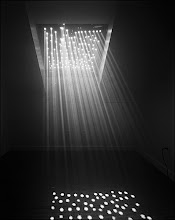As I reflect on the four days I spent at the 2009 Dungog Film Festival, it is the above quote – from festival director Allanah Zitserman – that seems to be the easiest way to describe my experiences to you all.
Dungog is unlike any other film festival I have been to. I saw many great Australian films, met many interesting people (film-makers, film-goers, and local residents), and listened to many enlightening film industry discussions. What made it unique was that all of this took place in a small, northern-NSW rural town, three and a half hours out of Sydney. This was not the Dendy in Newtown (my local inner-city cinema), this was foreign turf, and I was a wide-eyed tourist having my own little personal adventure. I’m sure that every single one of the 6,000 people that flocked to the festival this year had their own personal adventure as well. It’s the sort of thing that you really need to experience for yourself.
